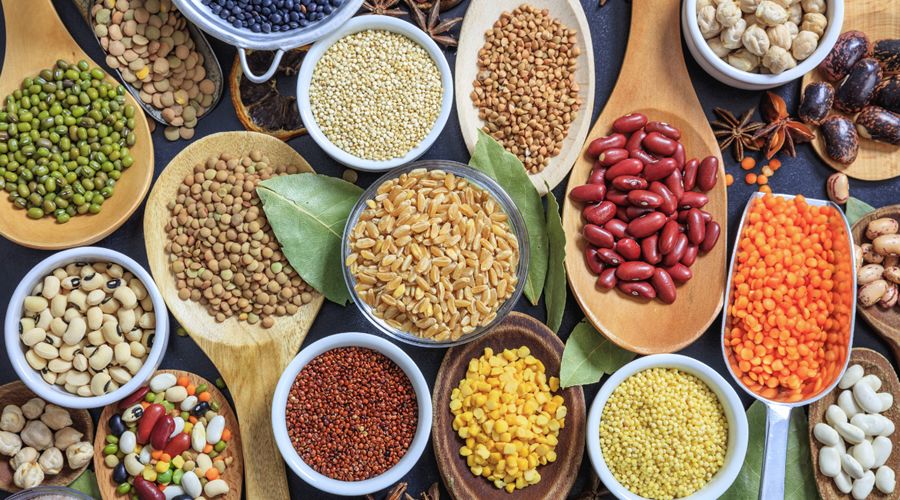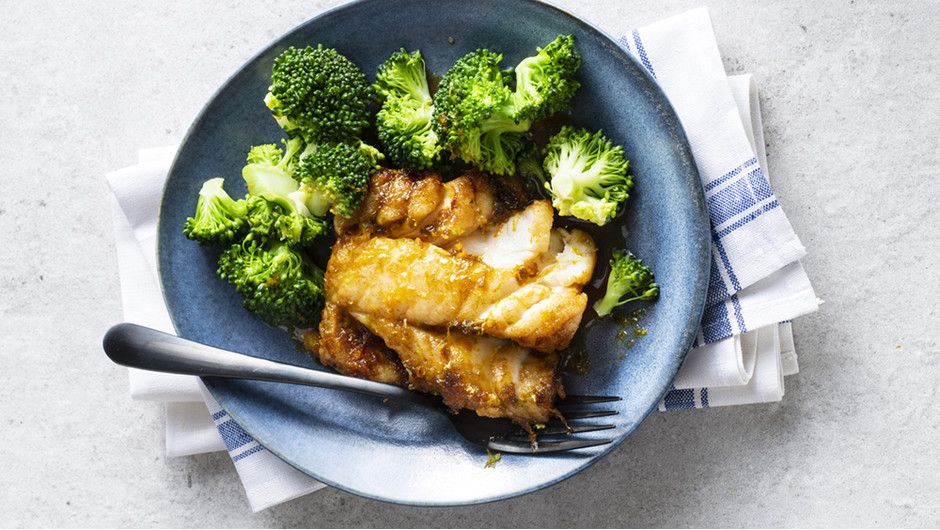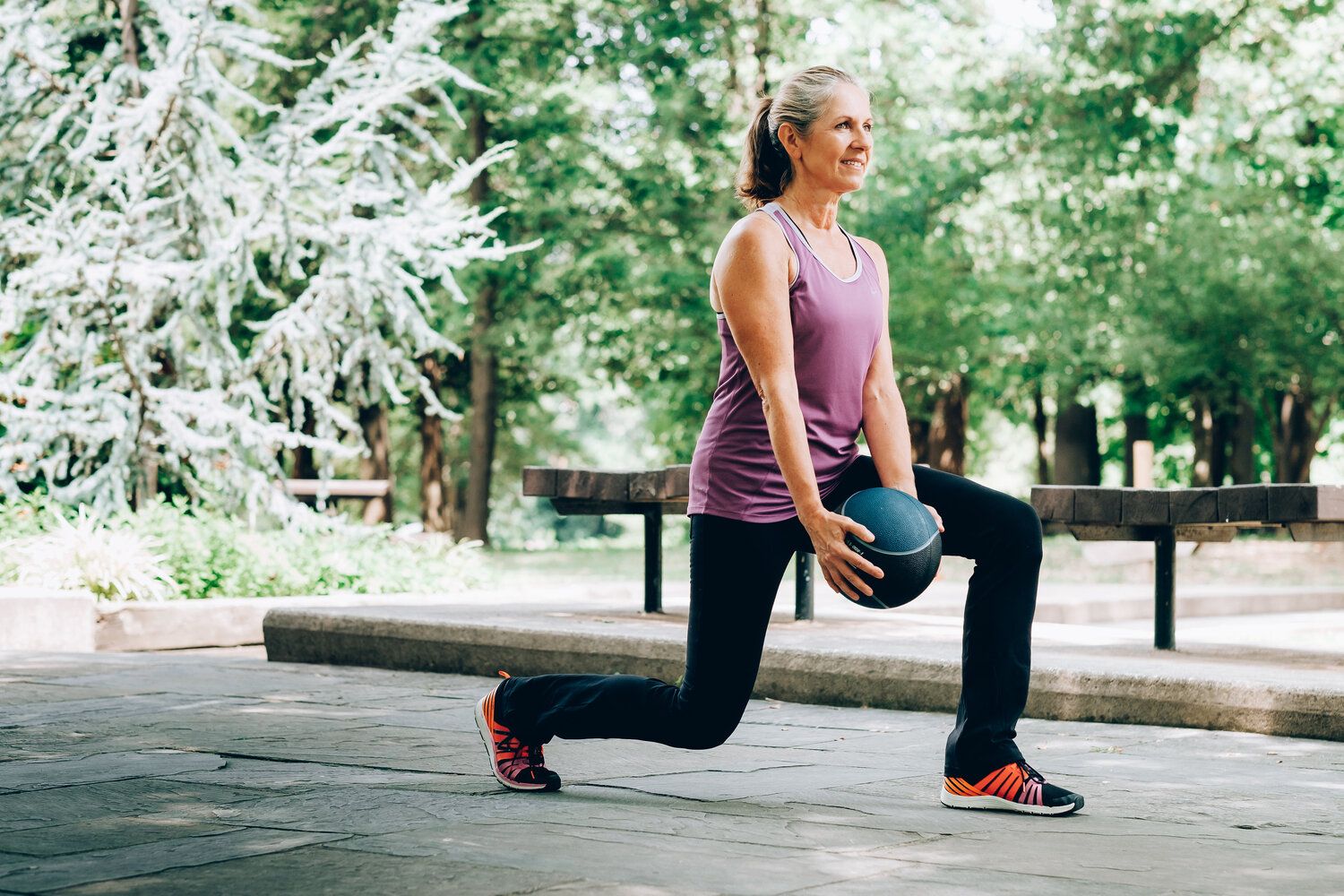Menopause is the time when menstrual periods stop in a woman’s life. The ovaries no longer release eggs. Unfortunately, in our country, menopause is seen as taboo, and many women suppress this period in their lives, acting as if it is not happening or as if they have never or will never experience it. Nutrition during menopause is a very important issue and we should more emphasis on it. The slowing metabolism and the hormonal shifts in the system cause a lot of change in a woman’s body. Especially around the age of 40, excess fats begin to cluster around the waist, but people usually do not associate this with premenopause. However, the body does not suddenly enter menopause; the changes take years. Many scientific studies show the importance of a proper diet before and nutrition during menopause.
Research results on women who follow the Mediterranean diet and enter menopause:
- It has been found that women who consume unrefined grains (whole grains, rye, oatmeal) and legumes (chickpeas, beans, lentils) are less likely to become obese during the menopause period; those who consume refined grains (white bread, pasta, noodles, white rice) are more inclined to become obese.
- It has been observed that consuming high amounts of red meat and potatoes is related to obesity rates. Consuming high amounts of nuts (hazelnuts, peanuts, almonds, walnuts) and drinking tea/coffee also triggers obesity in this period.
The results of another study which took place in England are striking. The study shows that what we eat is related to the time we enter menopause.
These are the results:
- Eating high amounts of oily fishes and fresh legumes can delay menopause by around 3.3 years.
- Consuming high amounts of pasta and white rice is a factor that can cause menopause to start earlier by about 1.5 years.

It is very important to acquire healthy eating behaviors during this period. As technology develops, work that takes advantage of the positive aspects of technology is also increasing. In another study, researchers sent messages to menopausal women about "nutrition advice and information." As a result of these messages, it was observed that the women’s consumption of fruits and vegetables, which are sources of vitamins, minerals, and fiber, and the consumption of fish, which is very important in this period, increased.
One of the problems women face during menopause is osteoporosis (bone erosion).
During menopause, bone loss reaches its fastest stage, due to dropping estrogen levels. Osteoporosis affects 200 million women around the world; it affects 1 out of 10 around age 60, 1 out of 5 around age 70, 2 out of 5 around age 80, and 2 out of 5 around age 90. To solve this problem, healthy and proper nutrition during menopause is important once more. Proper nutrition during menopause and fitness are critical not only for weight but also for bone health in this period and even before the beginning of menopause.
Vitamins and minerals are also key. Vitamin D, calcium, magnesium, and zinc are the leading vitamins and minerals for bone health. They all work synchronously; one being absent or in excess will affect the others as well. Vitamin D is a vitamin that plays an important role in the absorption of calcium. It is an essential vitamin to prevent osteoporosis in this period. The greatest source of vitamin D is the sun. Calcium is not only found in milk. Dairy products (cheese, yogurt), dark green colored vegetables (black cabbage), broccoli, almonds, and some fishes (sardines) are all strong sources of calcium. Do not forget to have appropriate medical tests done under the supervision of your doctor.

There are also challenges women to face that affect their quality of life during this period.
There are studies that suggest that flaxseed is effective for reducing some symptoms that lower quality of life, such as menstrual cramps, but there are also studies that suggest it has no effect. It can’t hurt to try it. In the end, things that are natural will not hurt you if you don’t use them excessively.
Did you know that women in the Far East are 8 times less likely to have menstrual cramps?
Some authorities emphasize the important role of nutrition during menopause in avoiding this problem. In Japan, women see the period as a form of “rebirth,” and they do not even have a word for menopause in Japanese. In contrast, in our culture, people think that menopause is a very difficult period for women because they do not know how to face hormonal changes.

Exercising during this period is very important for combating weight gain, for improving bone health, and for decreasing the likelihood of heart diseases.
292 studies have found that exercising is a protective factor against obesity during menopause. Recently, when I was exercising with my dear trainer, he gave me the following advice for hard times: “Success is no coincidence. You should work hard to make your dreams come true”. After hearing this, I continued my exercise with determination. Working out is just as important as proper nutrition to overcome both the hormonal and mental changes.
In order to meet menopause as smoothly as possible and reduce fat in the waist region, a.k.a. the "menopause bandage", try to prioritize healthy eating habits and fitness starting from the age of 40. Of course, if you pay attention to these two things, you will be much healthier all the time, but if you have not done so before, perhaps you can decide to take a new step right now. Don’t forget: Lying down does not accomplish anything, but taking action does.












